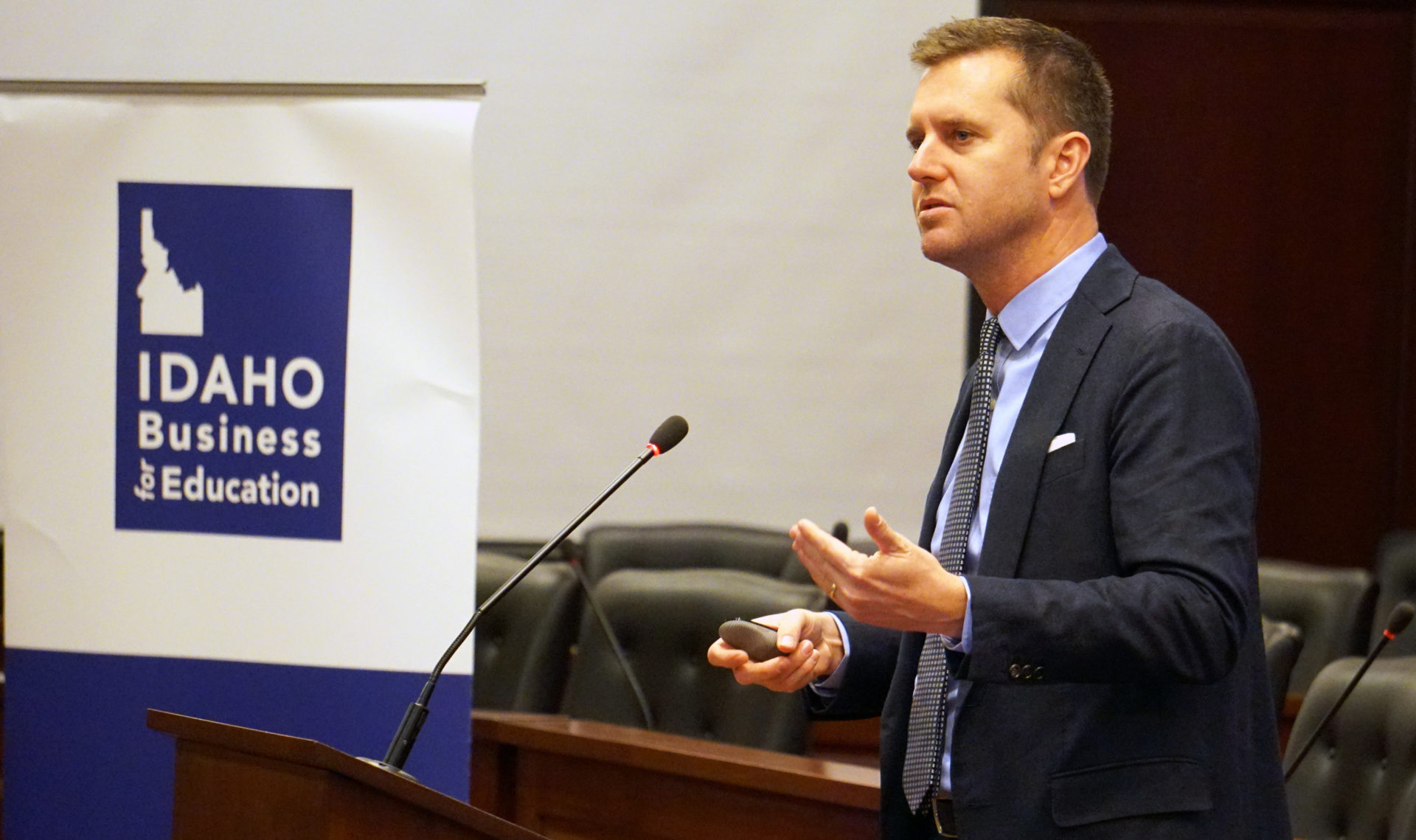The world’s next industrial revolution presents a “huge opportunity” for Idaho, if the state can modify its school system to match it.

“I think Idaho is positioned very, very well,” Michael Schmedlen, HP’s vice president for worldwide education, told an audience of about 200 education and business leaders and elected officials Monday morning.
Schmedlen spoke at Idaho Business for Education’s legislative academy, an annual Statehouse event that coincides with the first day of the Legislature. The 2019 session begins Monday afternoon with Gov. Brad Little’s first State of the State address. But as lawmakers and education leaders wait for Little to spell out his 2019 legislative agenda, speakers at IBE’s academy took a more global view of education and the economy.
Schmedlen painted a stark but familiar picture of economic transformation.
Nearly two-thirds of today’s students will work in jobs that have not yet been created. Tomorrow’s workers will move much more from job to job. They will work in a competitive, diverse and global workplace. Students will need critical thinking skills, and they will need to learn to collaborate and innovate.
Education should adapt quickly, he said. Schools need to offer highly sought-after skills — which can include traditional disciplines such as math, science and reading. But schools also need to improve their instructional approach and reform assessments. And working with the private sector, the education system needs to make sure adult learners are “reskilling and skilling up.”
While communities, states and nations need to change their education systems, Schmedlen cautioned against simply throwing money into technology, without studying the existing education system in detail. “Then you can create a roadmap for reform.”

Communities, nations and states need to diversify economically, since complex economies tend to be wealthier economies. Similarly, education systems need to produce graduates with diverse skills, said Marcela Escobari, a senior fellow with the Washington, D.C.-based Brookings Institution.
Escobari couched the challenge in human terms. Too many workers are juggling multiple, part-time jobs to make ends meet — or they are dropping out of the labor market entirely.
“The low-skill jobs are becoming crappier,” said Escobari, to some nervous laughter.
